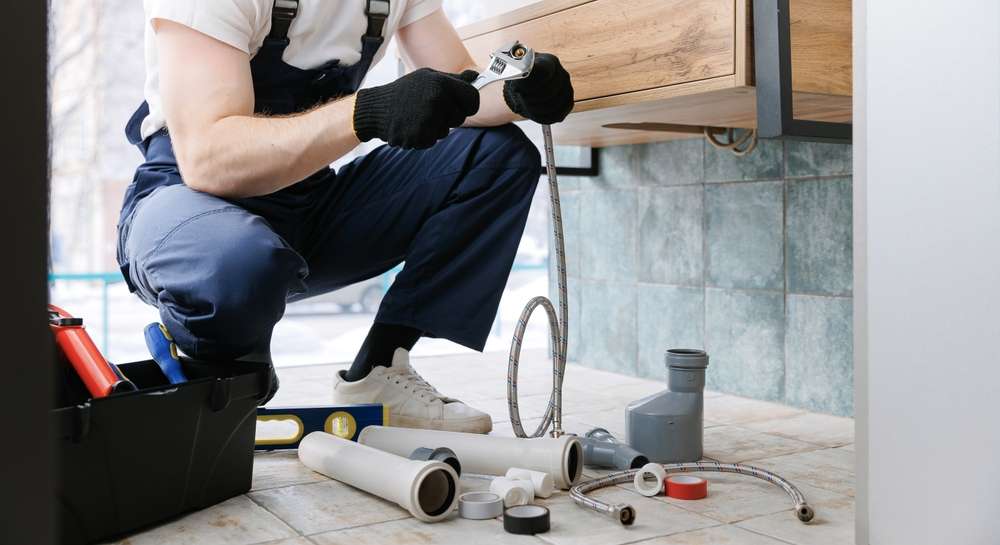Exploring the Demand for Plumbing Professionals in 2025
The plumbing industry continues to experience significant growth as infrastructure needs expand and skilled professionals become increasingly valuable in the modern economy. With aging water systems requiring updates, new construction projects multiplying, and environmental regulations driving innovation, the demand for qualified plumbing professionals has reached unprecedented levels. Industry data suggests that plumbing careers offer stability, competitive compensation, and opportunities for advancement across residential, commercial, and industrial sectors.

Analyzing the Outlook for Plumbing Careers and Job Growth
The employment landscape for plumbing professionals shows robust expansion patterns driven by several key factors. Population growth in urban and suburban areas creates continuous demand for new plumbing installations, while aging infrastructure in established communities requires extensive repair and replacement work. The Bureau of Labor Statistics projects steady growth in plumbing occupations, with job opportunities expanding faster than the average for all occupations.
Economic resilience characterizes the plumbing sector, as water and sewage systems remain essential regardless of economic fluctuations. This stability attracts individuals seeking long-term career security. Additionally, the retirement of experienced professionals creates pathways for newcomers entering the field, while technological advances in plumbing systems require ongoing training and specialization opportunities.
Insights into Plumbing Career Opportunities and Industry Trends
Modern plumbing careers encompass diverse specializations beyond traditional residential service calls. Green plumbing technologies, including water-efficient fixtures and sustainable drainage systems, create specialized niches for environmentally conscious professionals. Smart home integration requires plumbers familiar with digital monitoring systems and automated controls.
Commercial and industrial plumbing sectors offer distinct career paths with unique challenges and compensation structures. Healthcare facilities, manufacturing plants, and large office complexes require specialized knowledge of complex systems and regulatory compliance. These specialized roles often command higher wages and provide opportunities for advancement into supervisory or consulting positions.
Entrepreneurial opportunities within the plumbing industry remain strong, with many professionals eventually establishing their own service companies. The combination of essential services, repeat customers, and emergency calls creates sustainable business models for independent contractors and small businesses.
Understanding the Growing Need for Skilled Plumbers in 2025
Demographic shifts contribute significantly to increased demand for plumbing professionals. Baby boomer homeowners increasingly require accessibility modifications and system upgrades, while millennials purchasing homes often invest in modern, efficient plumbing systems. New construction trends emphasizing sustainability and energy efficiency require specialized installation and maintenance expertise.
Water conservation initiatives and environmental regulations create additional demand for skilled professionals who understand modern technologies and compliance requirements. Many regions implement rebate programs for efficient fixtures and systems, driving consumer adoption and creating installation opportunities.
Climate change impacts, including extreme weather events and shifting precipitation patterns, stress existing water infrastructure and create urgent repair needs. These factors contribute to consistent demand for both emergency services and preventive maintenance work.
Regional Variations and Market Conditions
Geographic location significantly influences plumbing career prospects and compensation levels. Metropolitan areas typically offer higher wages but also present increased competition and cost of living considerations. Rural and suburban markets may provide stable customer bases with less competition but potentially lower service rates.
Construction booms in certain regions create concentrated opportunities for new installation work, while established urban areas focus more on maintenance and replacement services. Coastal areas often require specialized knowledge of saltwater corrosion and hurricane-resistant installations.
Training and Certification Requirements
Professional plumbing careers require comprehensive training combining classroom instruction with hands-on experience. Most states mandate licensing requirements including apprenticeship programs, technical education, and examination processes. These requirements ensure professional competency while creating barriers to entry that help maintain wage stability.
Continuing education requirements keep professionals current with evolving technologies, safety protocols, and regulatory changes. Specialized certifications in areas like green plumbing, backflow prevention, or medical gas systems can enhance earning potential and career opportunities.
| Career Path | Average Annual Salary Range | Experience Required |
|---|---|---|
| Apprentice Plumber | $35,000 - $45,000 | 0-2 years |
| Journeyman Plumber | $50,000 - $75,000 | 2-5 years |
| Master Plumber | $70,000 - $95,000 | 5+ years |
| Commercial Specialist | $75,000 - $110,000 | 3-7 years |
| Business Owner | $80,000 - $150,000+ | 5+ years |
Prices, rates, or cost estimates mentioned in this article are based on the latest available information but may change over time. Independent research is advised before making financial decisions.
The plumbing profession offers multiple pathways for career development, from technical specialization to business ownership. Industry observers note that technological integration and environmental consciousness will continue shaping professional requirements, creating opportunities for those willing to adapt and learn. Success in plumbing careers typically combines technical expertise, customer service skills, and business acumen, regardless of the specific career path chosen.
As infrastructure needs evolve and environmental considerations become increasingly important, the plumbing industry represents a stable career choice with growth potential. The combination of essential services, diverse specialization options, and entrepreneurial opportunities positions plumbing as a profession capable of providing long-term career satisfaction and financial stability for dedicated professionals.




